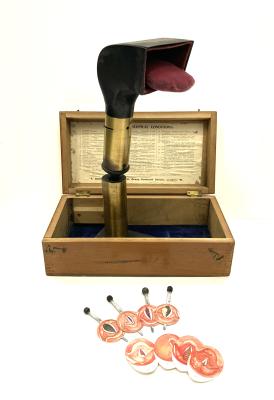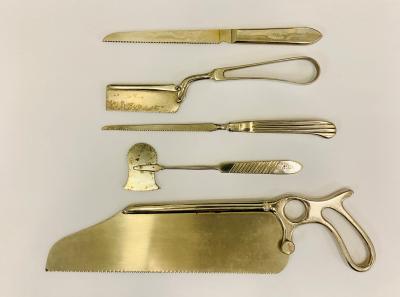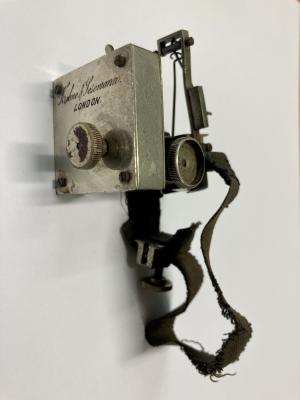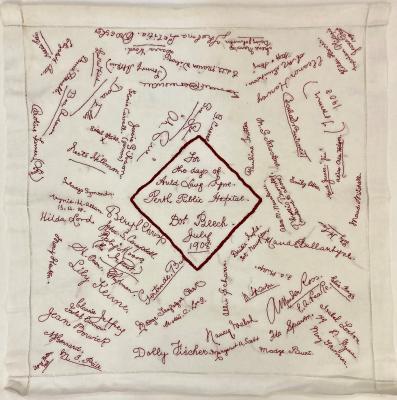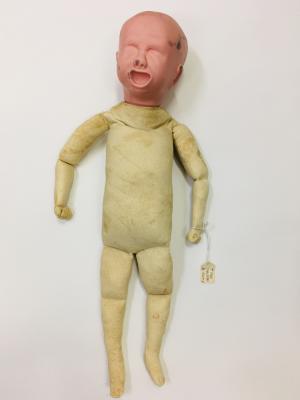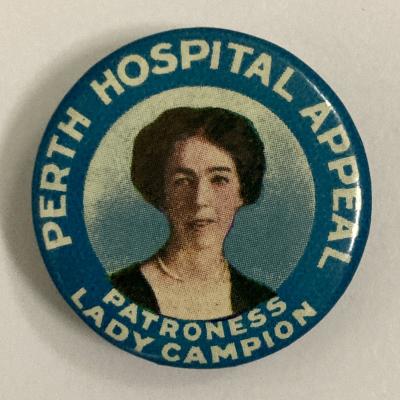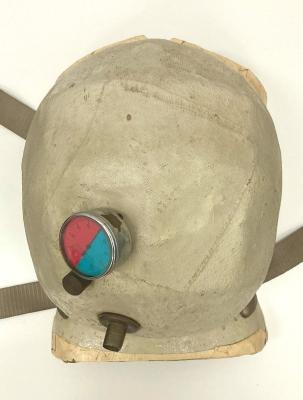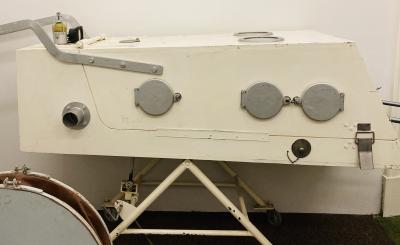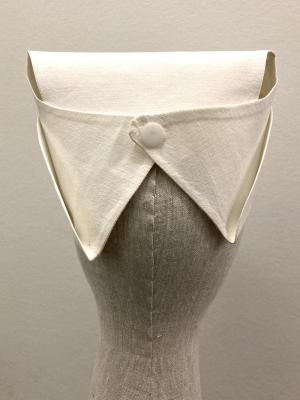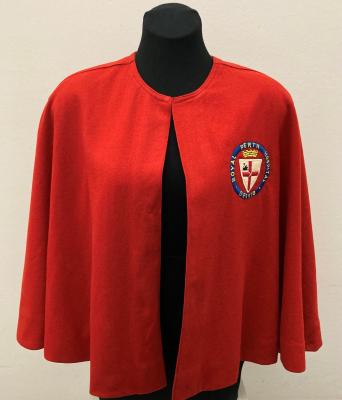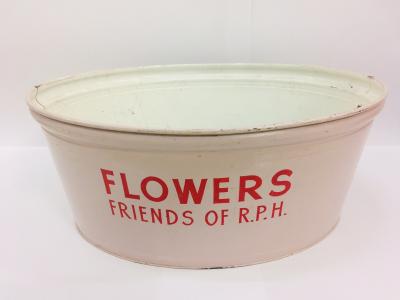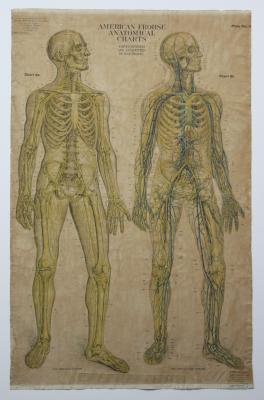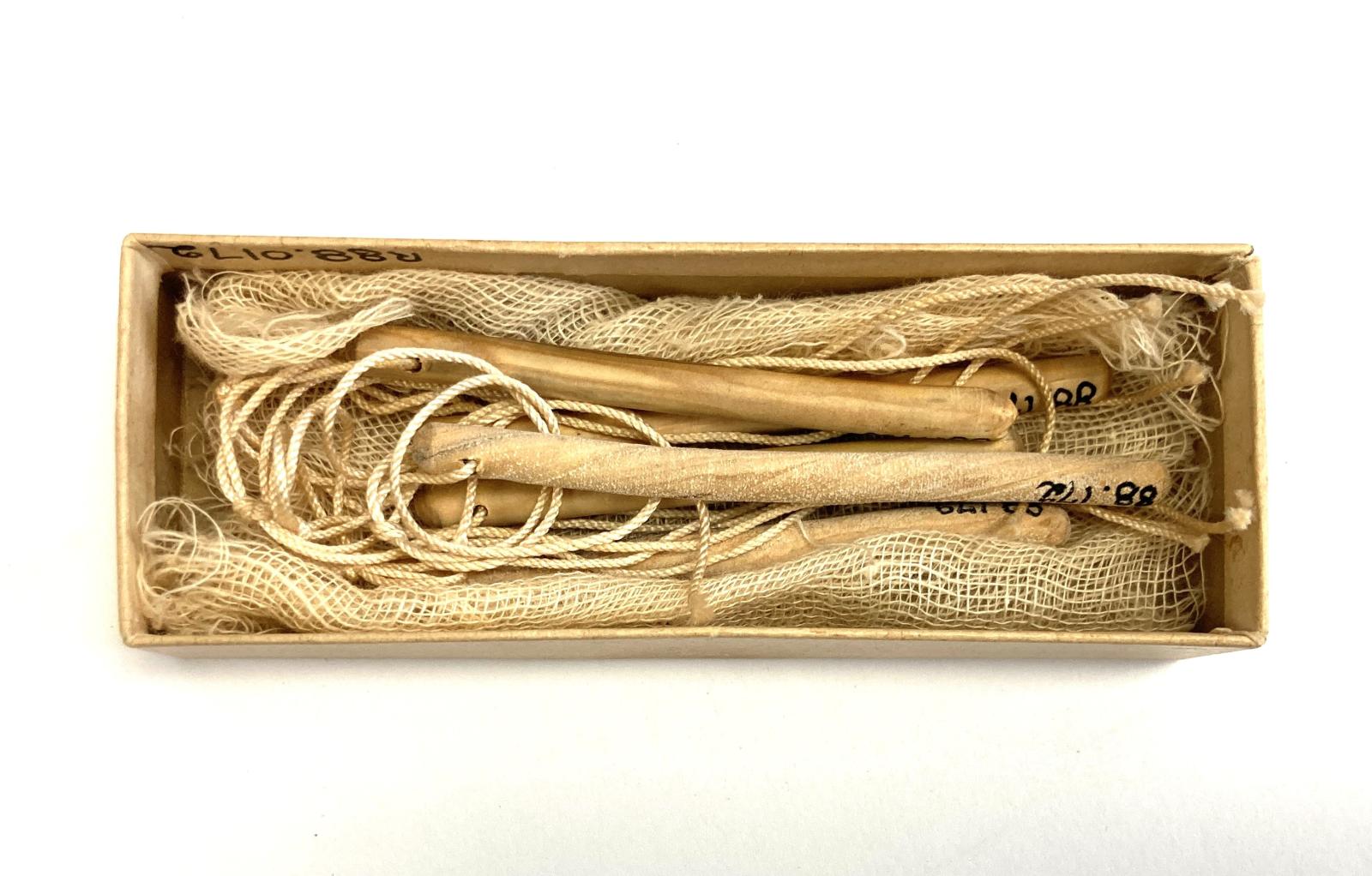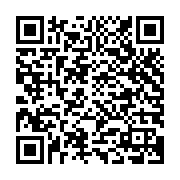LAMINARIA, BOX OF TENTS
c. 1900 - 1920Small, cardboard box with discoloured cream-white base and maroon lid containing a set of five laminaria sticks or 'tents', also known as sea-tangle tents.
The smooth, cylindrical surgical instruments are made from compressed laminaria, a leathery brown seaweed. Each tent is small, thin, light-tan in colour and wooden in appearance, with rounded ends the thickness of a pencil. They each have a hole drilled at one end with silk thread attached. When inserted into the cervix, the laminaria absorbs moisture and slowly expands which opens the cervix over a number of hours.
The laminaria tent was used to induce labour or prepare the cervix for a medical procedure without the use of force. Several tents could be inserted to increase dilation.
The box of laminaria tents was found in the RPH Hospital Administrator's office in 1986.
An article in the Lancet Journal states that there are very few medical devices made from seaweed. However laminaria, or sea-tangle tents, were standard equipment for the obstetrician in the late 19th and early 20th Century.
Details
Details
A handwritten label at the narrow end of the maroon lid in black ink reads 'TENTS'.
Laminaria tents were developed in the late 1800s and were a standard piece of obstetrics equipment until the early 1900s when they fell out favour due to complications from infections.
This set was found in the RPH Hospital Administrator's office in 1986. Mr Victor F Driscoll was the Hospital Administrator from 1968 to 1986 (and then CEO when the position title changed in 1986) so it is very likely they were found in Driscoll's office.
Unusual and rare item in excellent condition with a direct association with Royal Perth Hospital. The item has historic and scientific value as it illustrates developments in female healthcare practices including pregnancy, abortion and childbirth. The use of seaweed to make medical surgical instruments is very uncommon.
